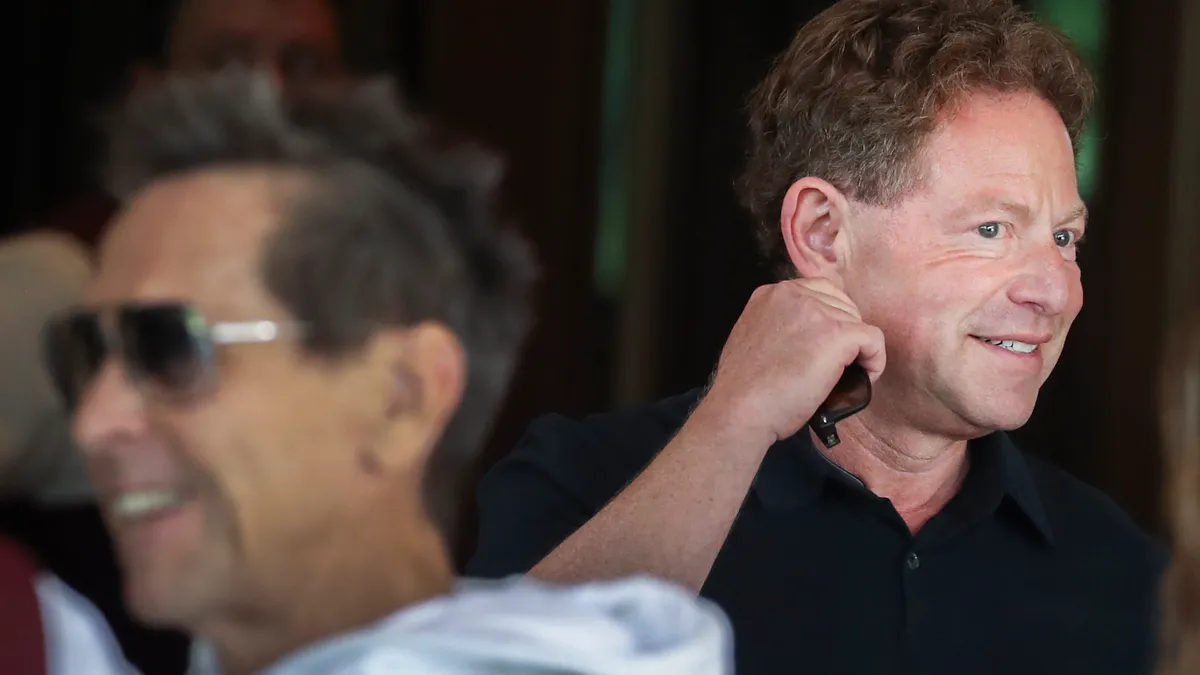Dive Brief:
- Activision Blizzard CEO Bobby Kotick knew about sexual misconduct claims at the company years prior to the 2021 walkout and did not inform the company’s board of directors of everything he knew, according to a Nov. 16 report from The Wall Street Journal. Kotick intervened in at least one case, keeping an exec accused of sexual harassment on board after the issue was investigated by corporate HR, and had at least two individual claims of harassment against himself dating back to the mid-2000s, according to the Journal.
- Kotick also had a direct hand in writing an email ostensibly sent from Fran Townsend, the company’s chief compliance officer and one of few female executives at the company at the time, which sparked the initial employee walkout in July, the report claimed. Townsend resigned as sponsor of the company’s Women’s Network in response to the outcry. "Ms. Townsend should not be blamed for this mistake," an Activision Blizzard spokesperson told the Journal, further stating that Kotick takes responsibility for the incident and regrets it.
- Activision Blizzard shareholders wrote a letter to the board asking for CEO Bobby Kotick’s resignation, according to various media reports. Employees walked out again Nov. 16 in response to the report, also calling for his resignation.
Dive Insight:
The ongoing Activision Blizzard saga has shaken the industry, placing a keen spotlight on how women and other underrepresented groups are treated in gaming and tech — and illustrating how HR can sanction bad behaviors at a company level.
In a video sent to Activision Blizzard employees, Kotick called the Journal report an "inaccurate and misleading view of our company, of me personally, and my leadership."
"Anyone who doubts my conviction to be the most welcoming, inclusive workplace doesn’t really appreciate how important this is to me," he continued. Earlier, Kotick asked the company board to lower his salary to $62,500 per year, the lowest amount an employee earning a salary may earn under California law, and requested that he not receive any bonuses or equity grants "during this time."
In September, the company shook up its HR leadership and settled for $18 million U.S. Equal Employment Opportunity Commission allegations of harassment, discrimination and retaliation. About a month later, the company announced it would waive mandatory arbitration agreements for sexual harassment and discrimination claims and that it would institute a "zero-tolerance harassment policy."
Just a few weeks ago, Jen Oneal — who became company co-lead in August and one of the first women to lead one of Activision’s business units, according to The Wall Street Journal — stepped down. She told Activision’s legal team she lacked faith in the company’s "leadership to turn the culture around" and said in an email obtained by the Journal she had been "tokenized, marginalized, and discriminated against."
Worker group ABK Workers Alliance led the second employee walkout Nov. 16, stating in a tweet: "We will not be silenced until Bobby Kotick has been replaced as CEO, and continue to hold our original demand for Third-Party review by an employee-chosen source."
The allegations against Activision Blizzard showcase what can happen when HR is used as a tool to protect high-up harassers rather than as an effective arm of the company given the tools to investigate complaints, experts previously told HR Dive; such allegations also solidify cultural perceptions that HR only serves to represent their organizations, not employees, one chief people officer told HR Dive. Course correction is possible, but it may require Activision Blizzard to commit to a cultural overhaul despite various uncertainties involved, sources said.














